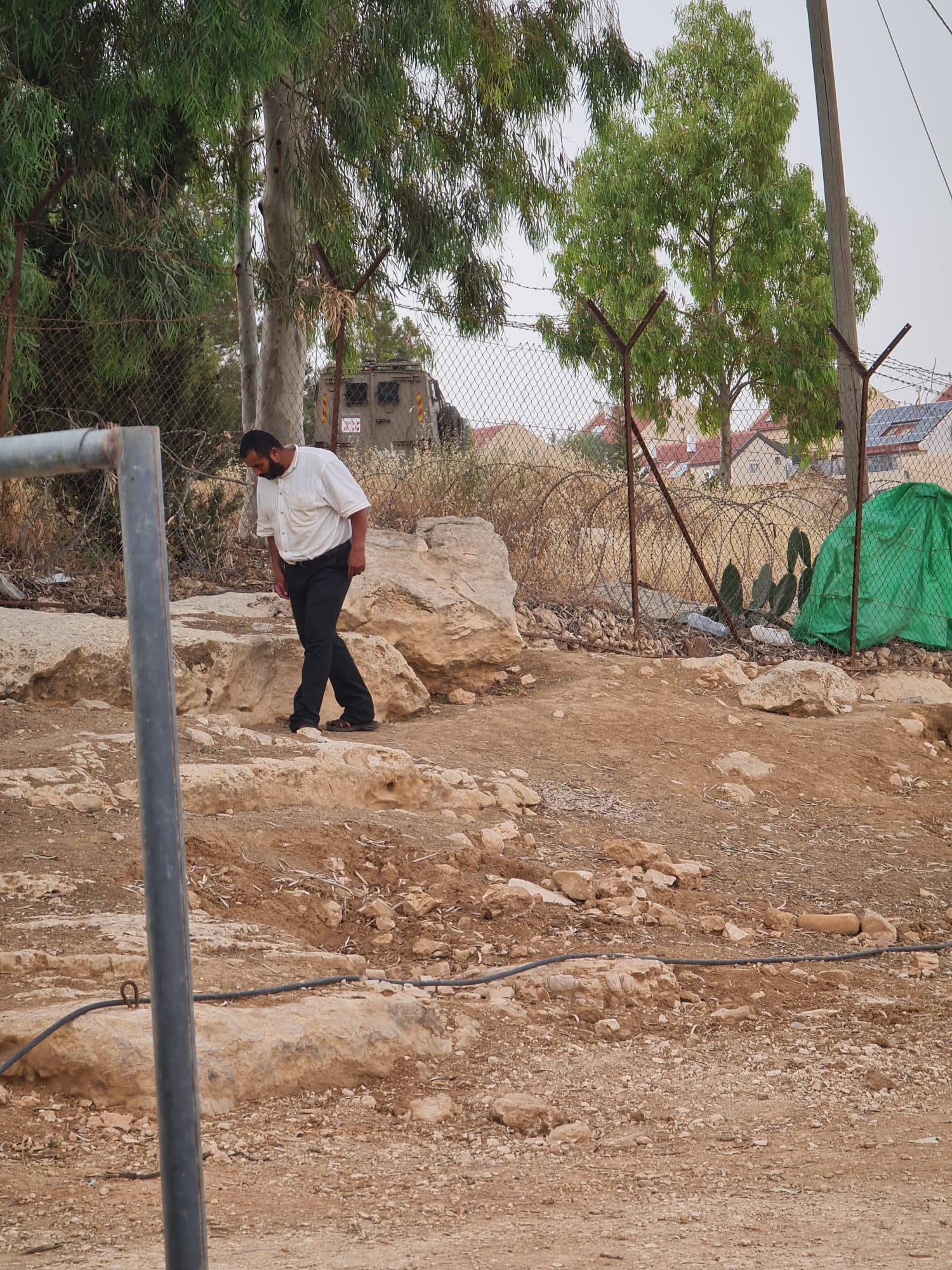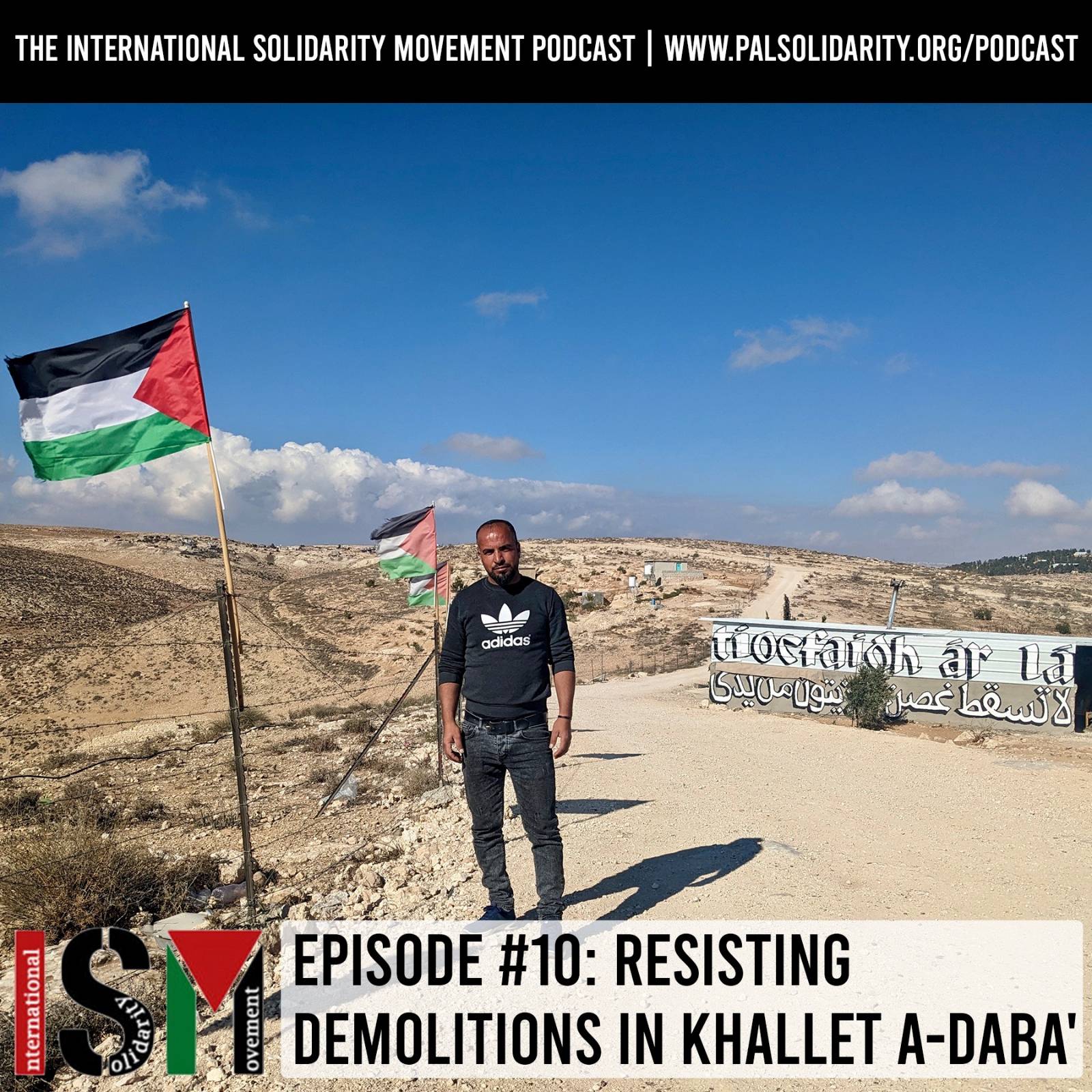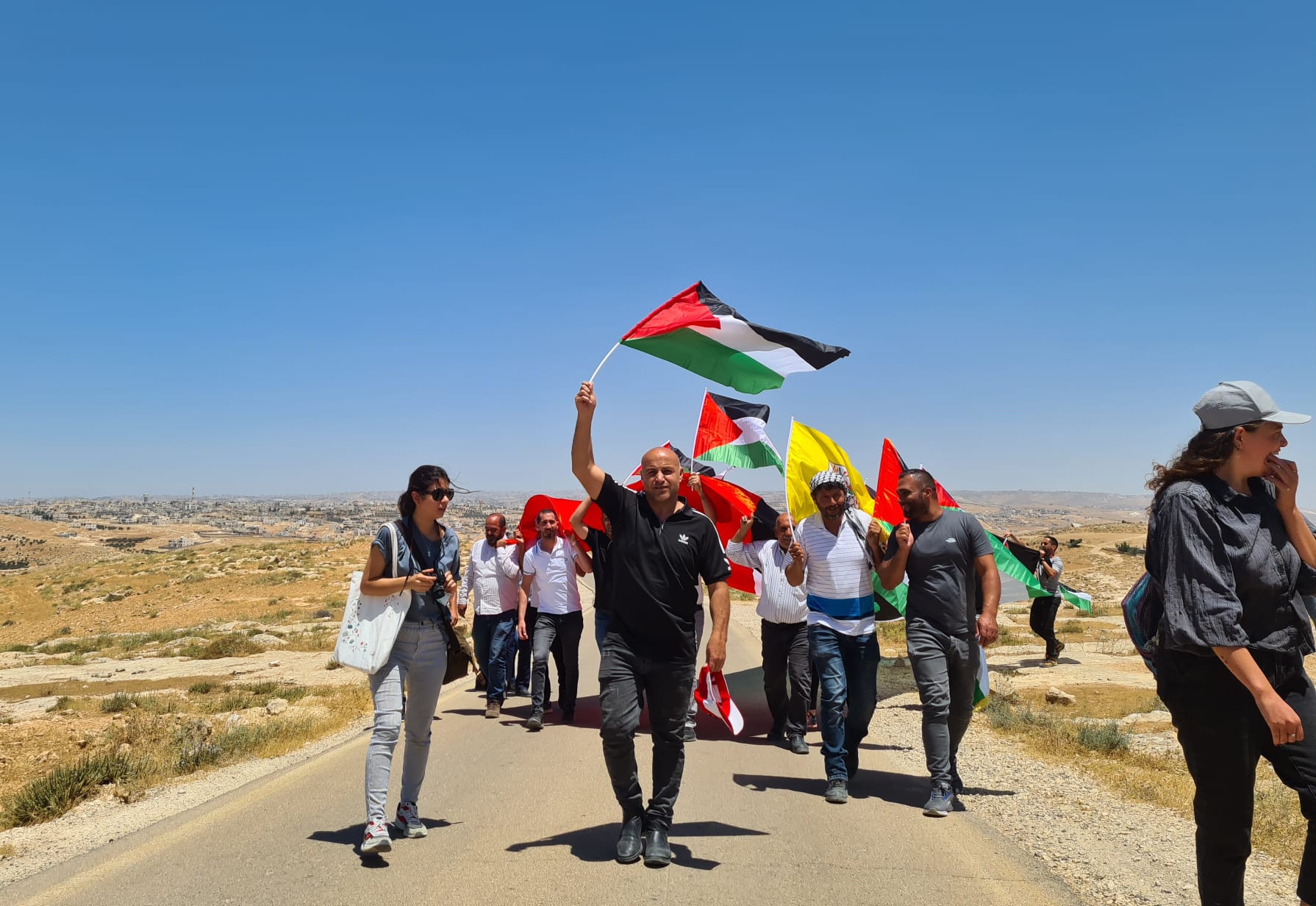Tag: House Demolition
-

Revenge attacks in Masafer Yatta
16 October, 2023 | International Solidarity Movement | Masafer Yatta In the week since Israel began its onslaught on Gaza, soldiers and settlers have bulldozed homes, carried out night raids and attacked Palestinians across the Masafer Yatta region. Occupation forces have taken advantage of the state of emergency to escalate their violence and displacement…
-

International Solidarity Movement Podcast episode 10: Resisting demolitions in Khallet-Al-Daba’
In Episode Ten of our podcast we speak to Jaber from the village of Khallet al-Daba’, in Masafer Yatta, in the South Hebron Hills. The Israeli supreme court has ordered the destruction of several villages in Masafer Yatta, and the occupation wants to destroy Khallet al-Daba’ first. The residents of Khallet al-Daba’ remain steadfast in…
-

ISM Call to Action: Save Masafer Yatta!
The International Solidarity Movement is calling all activists and supporters to take urgent action against Israel’s ethnic cleansing of the Masafer Yatta region in the occupied West Bank. What is Masafer Yatta?: Masafer Yatta is a rural region to the south of Hebron along the southern border of the occupied West Bank. It…
